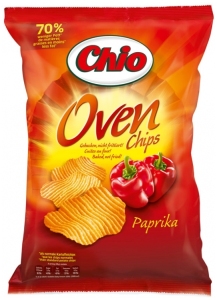McCain International Ltd. v. Country Fair Foods Ltd.
McCain International Ltd. v. Country Fair Foods Ltd.
1981 RPC 69
Brief Facts:
In January 1979, McCain International Limited(Plaintiff) launched in the market chipped potatoes and conducted an extensive advertising campaign in which they referred consistently and accurately to ‘McCain Oven Chips’ in the same way as they so referred consistently extensively and accurately in their packaging.
Defendant(Country Fair Foods Ltd.) wished to market two oven chips and intended to call them in one case ‘Country Fair Oven Chips’ and in the other case ‘Birds Eye Oven Chips’. Plaintiff instituted a suit against the Defendant for passing off.
On 24th April, 1980, Lawson, J. granted an injunction by way of interlocutory relief in a passing off action. The present case was on the appeal against that order of grant of injunction.
Court’s Observations:
This is not a case where any consumer will fall into the error of assuming that oven chips marketed with the Country Fair or Birds Eye Brand have some connection with the Plaintiffs Mc Cain oven chips merely because ‘McCain Oven Chips’ have been the only oven chips in the market for a period of 18 months or for any other reason.
These are all well-known brand names and must be known to be competitive. If there is no actual confusion wherein lies the harm in the Defendant use the name oven chips?
A descriptive name does not indicate the source of the goods but the nature of the goods whereas the fancy name is an indication of a single source and that is why it is impossible for a Defendant to appropriate the same fancy name without committing the tort of passing off. Thus the name oven chips having been used primarily for the purpose of denoting or describing a particular kind of article and not for the purpose of establishing the source or origin, the Plaintiff is not entitled to any monopoly simply because the product was novel and the name was novel. As the Plaintiff have taken a risk of choosing descriptive words they run the risk that the Defendant cannot be prevented from using those same descriptive words so long as they make it clear that their brands of the product are not the same as the brand of the Plaintiff.
In the circumstance even if there is some evidence of possible confusion the learned judge was wrong in holding that the oven chips has become distinctive of the Plaintiff’s product.
The appeal was allowed.
Author: Anjali Bisht, Law College, Dehradun




